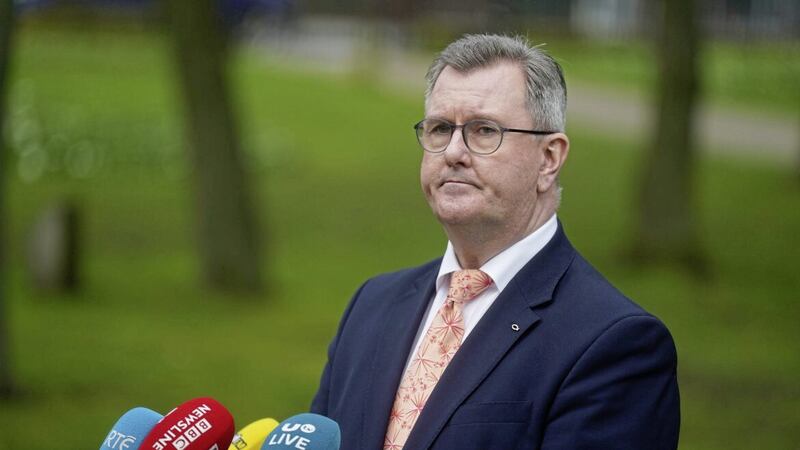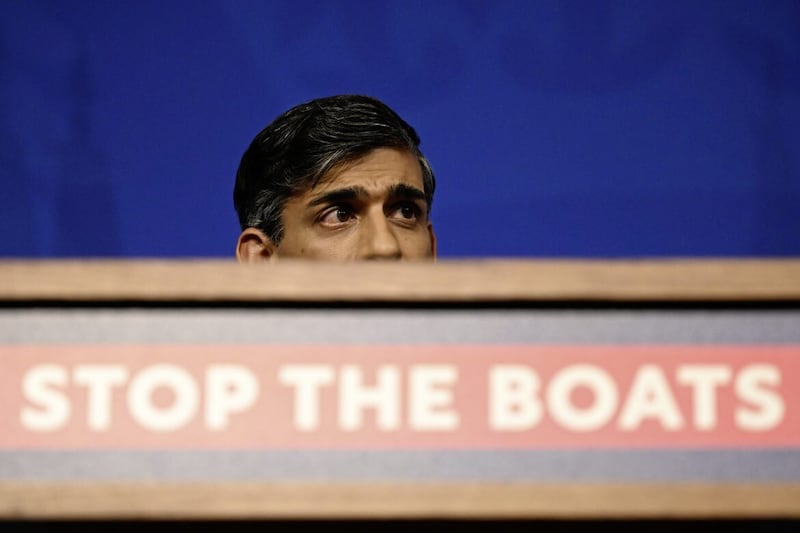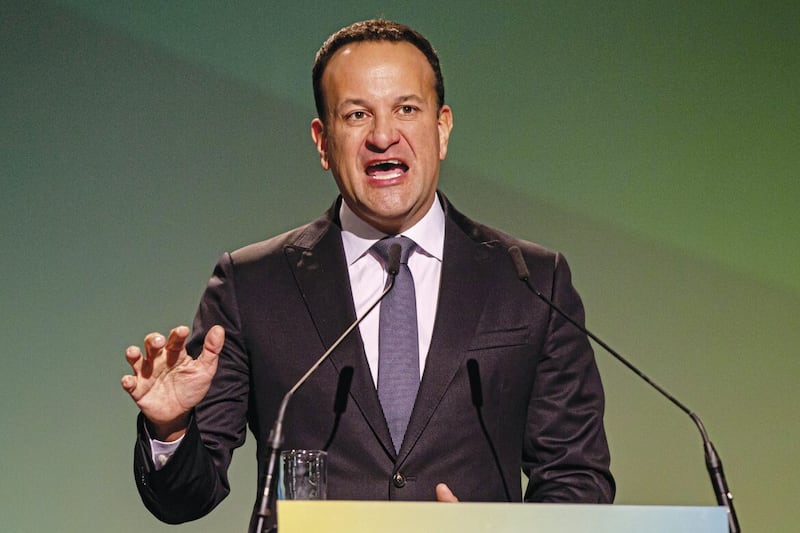BETWEEN the time I write this column and its publication, the British government and the EU could well have agreed a deal on the Brexit Protocol. Once that happens then all eyes will be on the DUP and their pronouncement on whether or not it meets the 'seven tests' they have set to enable them to go back into the Assembly.
I think we can assume that it will not, given the legal gymnastics of the plaintiffs in the action decided by the Supreme Court a couple of weeks back. Despite a number of them having law degrees, they have decided that they don't like what the court said so the "union-subjugating protocol" it shall remain in their vocabulary.
It has long been thought by many that the DUP's refusal to return to Stormont was a lot more to do with the fact that there would be a Sinn Féin first minister and they simply could not stomach taking the role of deputy.
Video emerged at the weekend of the TUV's Jim Allister speaking at a meeting where he said: "No ifs, no buts, no Sinn Féin first minister." He criticised Jeffrey Donaldson for failing to directly answer the question as to whether the DUP would serve alongside a Sinn Féin first minister and said: "The TUV has no difficulty answering it. If the TUV has the opportunity to block a Sinn Féin minister, we will do it with a heart and a half."
Of course, none of us are surprised by such a remark but we should be appalled by it.
Allister equates Sinn Féin only with the IRA and on that basis, says they are not fit to govern. The casual disregard for the 29 per cent of the electorate who voted for the party is staggering. Does Jim think those people don't deserve representation?
More so than that, such a position takes no cognisance of political maturation, nor the development of policies and processes that would have been at one stage unthinkable for republicans to countenance. But political progress requires new thinking.
Republicanism has been on a growth journey whilst unionism has been shrinking. That is not only in terms of numbers but in the narrowing of the definition of what unionism is. And the only people who have narrowed that definition are unionists themselves.
The editorial in this newspaper on Monday described GAA president-elect Jarlath Burns as "...the right man at the right time to lead the GAA in its next period of development as well as in the wider conversations about a changing Ireland".
The video clip of Burns talking to Thomas Niblock of the BBC a number of weeks ago could not be a greater contrast to what we have seen from unionism. He is talking very much about an outward-looking and forward-looking GAA; an organisation that is comfortable with its own identity and that is actively trying to encourage diversity within its ranks.
But more than that was the revelation that he had engaged with the Orange Order in his role as principal of St Paul's High School, Bessbrook by bringing members of the order in to talk to students about their values, beliefs and identity, and what it means to them. That is a great way of breaking down barriers and he is to be applauded for doing so.
It seems that the biggest differences are that nationalists and republicans are outward-looking whilst unionists are inward-looking and since the Plantation of Ulster, there have been two separate, but converging, battles.
On the republican side, the issue has always been about self-determination, regardless of religion. Devolution offers a measure of self-determination in the here and now, although it is not an end point in itself.
On the unionist side, religion has been at the centre of it and that comes from the Reformation. Unionism's loyalty to Britain has always been conditional and we have seen that with Home Rule, the Ulster Workers' Council strike, Anglo-Irish Agreement and most recently Brexit. Reverend Ian Paisley told Spotlight in 2001 that his loyalty to the crown was conditional on the monarch being a Protestant.
We can also add an element of racism to the scoreboard. To subscribe to the British Empire means inevitably also subscribing to the 'superior race' notion. Winston Churchill, the defender of the Empire, is on record as saying it was right for "a stronger race, a higher-grade race" to take the place of indigenous peoples and described anti-colonial campaigners as "savages armed with ideas".
None of this is to say that sectarianism and racism don't exist within nationalism and republicanism, but there is a significant lack of tolerance for it within the wider community.
If unionism wants to arrest its decline, then it needs to be more inclusive and that means respecting the will of the electorate. The DUP has the chance now to show political leadership as this Protocol deal concludes. Let's hope they take the opportunity.








